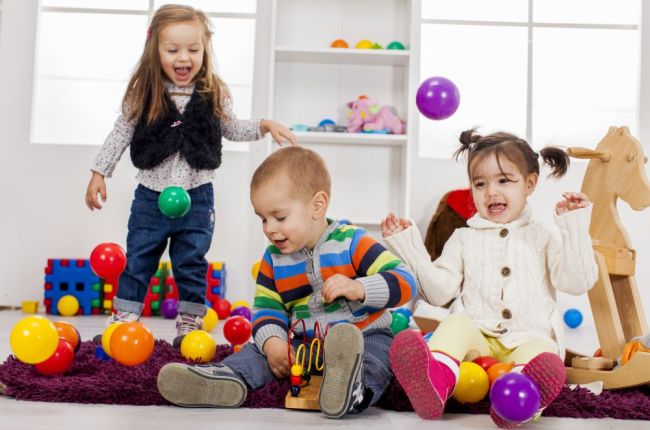If your child moistens his bed after he has actually been toilet-trained (normally after five years of age), take it in your stride.
Enuresis, or more frequently referred to as bedwetting, is a condition where your child is unable to manage his bladder when sleeping, resulting in involuntary urination.
Stop Bedwetting
Kids who struggle with nighttime enuresis might have less control of their bladders than they would like, causing "accidents" where they damp their bed at night.
It is important to note that you need to NOT penalize or trigger him embarrassment for bedwetting.
It is something that is out of his control at this point, and he is probably even more embarrassed or ashamed of it than you may envision.
In general, 5% -10% of children aged 5 to ten years have actually enuresis; 2% -3% in those aged 11-14 years; and 1% -2% in those above 15.
In reality, in one out of 100 of these kids, the problem may persist till adulthood.
Reasons for enuresis
The specific reason for nocturnal enuresis is unknown. However, there are a number of possible reasons:
- Hormonal agents: The body produces an antidiuretic hormone (ADH) that triggers it to produce less urine when asleep. An absence of ADH might result in more urine being produced when asleep.
- Bladder: Muscle convulsions might prevent the bladder from holding more urine. Some individuals may also have a smaller sized than typical bladder.
- Genetics/familial: Older kids who suffer from enuresis often have at least one parent who also had this problem, and at a comparable age.
- Deep sleep: Your child might be so deeply sleeping that he is unable to awaken to pee.
- Diuretics: Specific chemicals (e.g. caffeine, carbonated drinks) can trigger more regular urination.
- Medical conditions: Particular medical conditions can trigger secondary enuresis. These include diabetes, urinary tract abnormalities (a child born with an irregular urinary system), irregularity and urinary system infections (UTIs).
Spinal cord injury, such as extreme extending of the spinal cord due to a fall, sports injury or a car accident, might likewise play a role in enuresis, although this is unusual.
- Stress: Distressing occasions such as moms and dads separating, death (pal or family member), moving to a brand-new city, changing school or any sudden modifications can cause tension in kids. This might result in enuresis.
Bedwetting solutions
Consult your child's paediatrician for more information about nocturnal enuresis. It is essential to do so in order to exclude the probability of a medical problem.
This will include a physical exam and his complete medical history. The health examination may include a urine analysis to evaluate for signs of disease.
As nocturnal enuresis is not necessarily caused by illness, do not worry if the test results are regular.
His paediatrician might also need to ask for apparently unassociated details, such as sleeping habits or patterns, bowel movement, and urinary indications or signs (e.g. frequent urge to pee or pain/burning feeling throughout urination).
This phase might take a while to deal with and your child will likely continue to damp his bed.
In the meantime, you can attempt to make the problem more manageable by:
- Using a waterproof cover: Line the bed with a waterproof liner to keep his bed dry.
- Supply simple access to the toilet: Position his bed as near to the toilet as possible. If he sleeps in a bunk bed, let him use the bottom bunk.
- No babying allowed: Do not wake your child to go to the toilet as this is detrimental in the long term.
Older children may also wish to change their clothes/bedsheets at night, so do supply them with spares. Use Waterproof mattress pads
- No drinks before bedtime; early supper time: This helps to minimise the amount of fluids in his body, and therefore, hopefully avoid an excessively full bladder. This will lower the possibilities of wetting the bed or minimise the quantity.
Nevertheless, make sure to supply him with plenty of water throughout the day to prevent dehydration.
- Foods/drinks to prevent: Particular foods/drinks may make things worse. In basic, prevent anything that has caffeine in it as it acts as a diuretic, indicating that it triggers the desire to urinate.
The list of foods/drinks consists of coffee, tea, chocolate, and sodas or other carbonated drinks which contain caffeine.
Utilize Bedwetting alarm
This little gadget consists of a sensing unit and an alarm, which will wake your kid up if he moistens his bed.
The concept behind this is to "train" him to wake up by himself, and gradually, he will ideally awaken prior to he wets his bed.
The secret is to awaken quickly prior to the bed is too damp. The sooner he can get up, the more reliable it will remain in modifying his behaviour.
However, do be client as this will take at least a month prior to you can see whether there will be any improvement.
Regrettably, this approach may not be suitable if your kid shares a space with others (e.g. with brother or sisters or moms and dads).
Of course, there is no harm in talking to your kid's paediatrician for ideas on how to manage enuresis.
As a last option, your kid's paediatrician might even recommend some medication for it.
Do note that no medication has actually been proven reliable in completely "curing" bedwetting, and worst of all, bedwetting might resume when the medication is stopped.
Full commitment from parents/caretakers is essential in managing enuresis; do not just count on medication alone.
Rest assured that, yes, there is excellent news-- bedwetting will typically "clear up" by itself.
If you feel overwhelmed, discuss it with your kid's paediatrician-- he might have some recommendations on how you can handle it.

Post a Comment